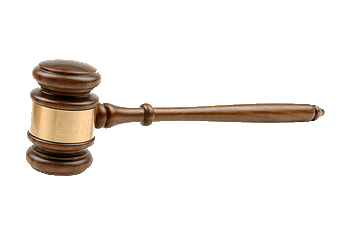Drivers cannot challenge the order of the driving licence authority to submit a medical-psychological report independently in court. The background is that the order for a medical-psychological assessment (MPU) is categorised as a preparatory procedural act of the authority (VG Neustadt a.d. Weinstraße, judgment 20.1.2016, ref.: 1 K 936/15.NW). Accordingly, parties involved can only obtain legal protection against the final substantive decision of the authority – e.g. on the revocation of the driving licence. In this context, courts may also review whether the driving licence authority issued the MPU-Order lawfully.
Brookes and Partners PartG mbB supports you as an experienced partner in all your legal matters concerning the MPU-Order. The following article will explain what such an order concerns and what legal protection options are available to you in connection with it.
If you have any questions or need individual and personal legal advice, do not hesitate to contact Schlun & Elseven Rechtsanwälte. Our team of lawyers will explain your legal options and represent you both out of court and – if necessary – in court.

Brooks and partners assists individuals with all aspects of German administrative and traffic law. Get to know our practice groups as well as our services.
An MPU-Order to Clarify Doubts about Aptitude
A medical-psychological report (MPU-Order) is an instrument for assessing fitness to drive. If facts become known that give rise to doubts about a person’s physical or mental fitness to operate a motor vehicle, the driving licence authority can request the submission of such an expert opinion. The requirements for the MPU-Order are found in §§ 11 ff. of the Driving Licence Ordinance (FeV).
For example, the driving licence authority may demand an MPU report if repeated offences have been committed in road traffic under the influence of alcohol. It can also apply if a vehicle has been driven in road traffic with a blood alcohol concentration of 1.6 per mille (§ 13 p. 1 no. 2 lit. b and c FeV). Another reason for seeking an MPU is doubts about aptitude concerning the consumption of narcotics (§ 14 FeV).
If the person concerned proves to be unfit to drive a motor vehicle, their driving licence is revoked based on § 3 StVG in conjunction with § 46 para. 1 FeV. Suppose the person concerned refuses to be examined or does not submit the required expert opinion in due time. In that case, this leads to the conclusion of unsuitability for possessing a driving licence (§ 11(8) sentence 1 FeV). In this case, the existing doubts about the suitability cannot be dispelled, so that the driving licence authority may also make an unfavourable decision.
The driving licence may therefore depend on the submission of an MPU report. For many, however, the driving licence is of existential importance. This is one of the reasons why the question of legal protection against an MPU-Order is often raised.
Legal Protection only against a Final Substantive Decision
The MPU-Order cannot be challenged independently in court. This inability to challenge the MPU-Order is because it is not an administrative act according to § 35 VwVfG (OVG Münster, decision of 22.1.2001, ref.: 19 B 1757/00). but rather, according to established case law, the MPU-Order is a preparatory measure concerning the decision on the driving licence revocation (BVerwG, decision of 15.5.1994, ref.: 11 B 157/93). It is an official procedural act that serves to clarify the facts of the case. The affected parties can only assert legal remedies against official procedural acts simultaneously with the legal remedies admissible against the decision on the merits (§ 44a VwGO). The person concerned must therefore wait for the authority’s final decision to appeal against it.
If the authority revokes the person’s driving licence based on the MPU or the failure to submit an MPU report, an action against this decision can be brought before the administrative court. In the context of the action against the driving licence revocation, the legality of the MPU-Order is then reviewed by the court. In particular, the request for an expert opinion must be proportionate.
However, it is essential to carefully check whether there are grounds to bring the case. It is advisable not to waste time and resources unnecessarily before filing an action. At the same time, however, it should be noted that the action can only be brought within one month of notification of the administrative act, i.e. the revocation of the driving licence (§ 74 (1) VwGO).
Interim Legal Protection due to an Order for Immediate Enforcement
If necessary, an application for interim relief can be filed together with the complaint. The driving licence revocation in case of unfitness is usually carried out together with the order of immediate enforcement (§ 80 (2) VwGO). This interim relief also applies in cases of unresolved suitability concerns, e.g. due to non-submission of the MPU report. In this case, the party affected may file an application to restore the suspension of the action for annulment under § 80 (5) VwGO.
If the authority seeks immediate enforcement of its decision, this means that any action has no suspensive effect. The driving licence can be revoked immediately despite the complaint being filed. However, if an application for interim relief is granted, the driving licence cannot be revoked until the administrative court’s decision becomes final.
However, concerning interim legal protection, it should be noted that the probable legality of a driving disqualification based on the lack of fitness to drive is regularly sufficient for the order of immediate enforcement to remain in place (OVG Münster, decision of 14 July 2015, ref.: 16 B 549/15). The reason for this is the particular danger to the safety of public road traffic posed by road users who are unfit to drive.
Legal Advice from Brooks and Partners
The information provided in this article is of a general nature. For further specialised insight and legal advice, please do not hesitate to contact our team of lawyers. We are your reliable and competent partner for all questions regarding administrative and traffic law.
Brooks and Partners is a multidisciplinary full-service law firm. With offices in Cologne, Aachen and Düsseldorf as well as conference rooms in Hamburg, Berlin, Stuttgart, Frankfurt and Munich, we operate nationwide and are always there for you. Our lawyers can advise you in German, English and other languages. Call us, send us an email or use our online form – we will be happy to give you an overview of your options as part of an initial assessment.




